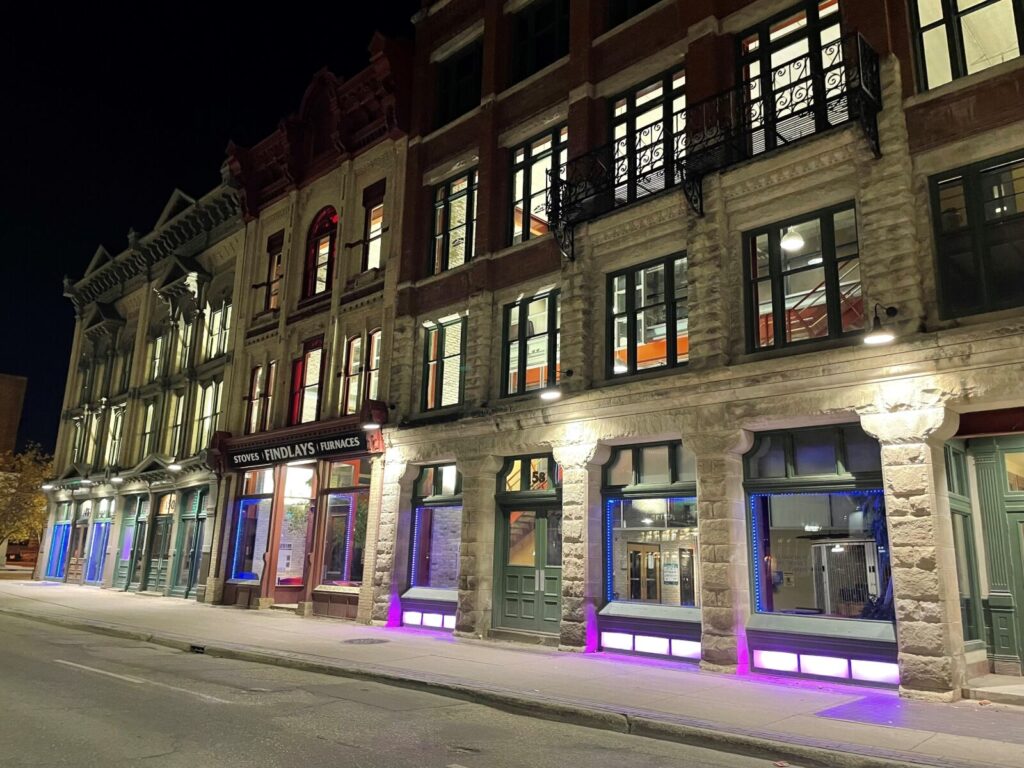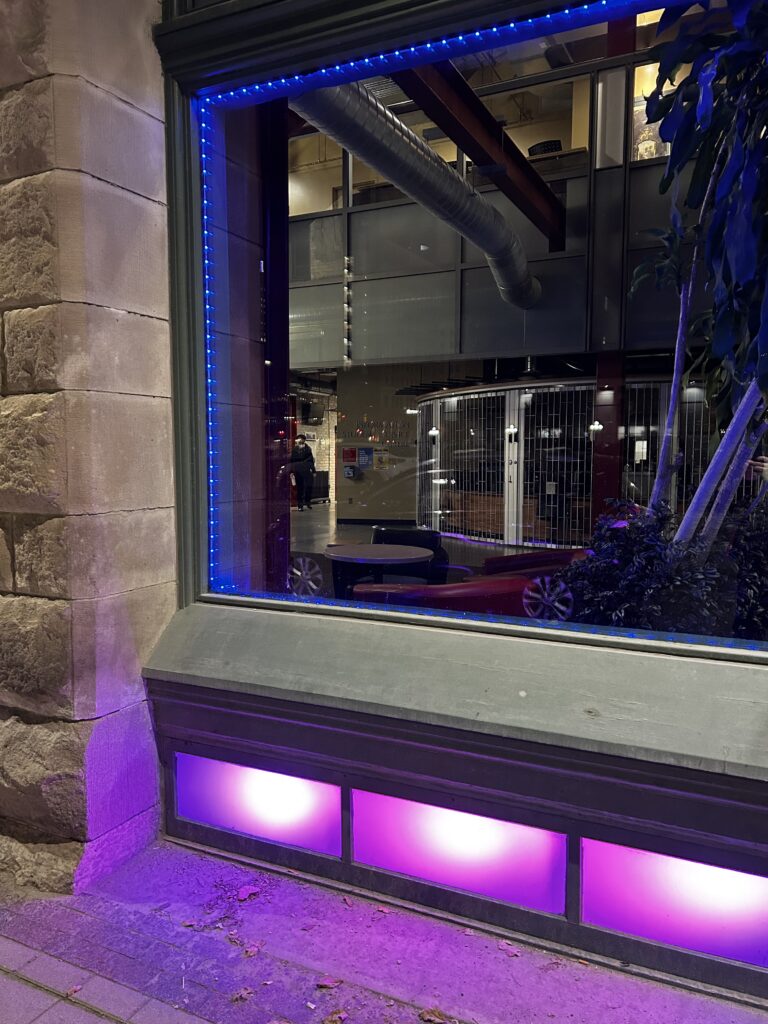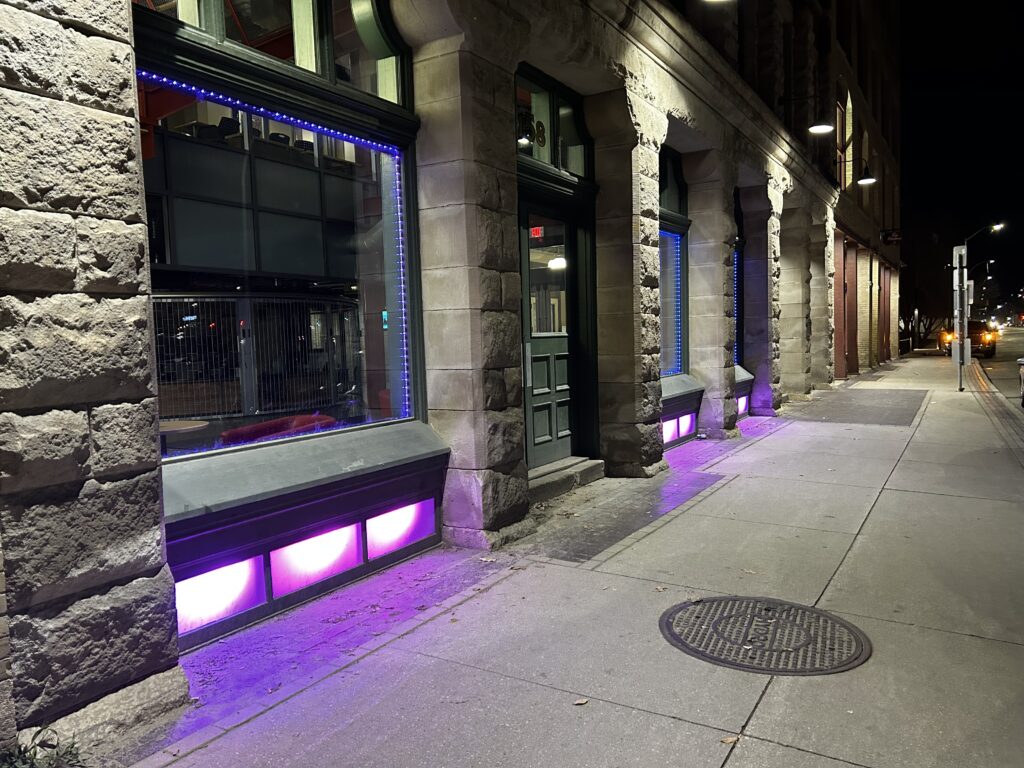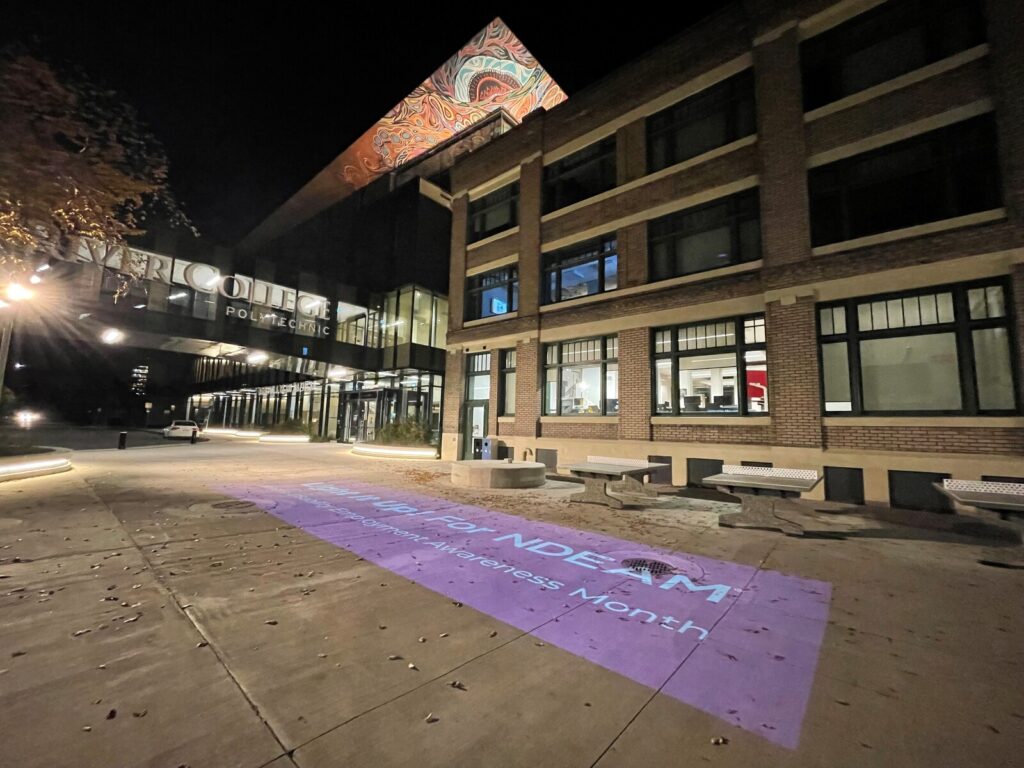Disability Employment Awareness Month (DEAM)
Disability Employment Awareness Month (DEAM) has been observed in October in Manitoba since 2010, to celebrate the tremendous contributions persons who experience disability make to our workplaces and communities, and to create opportunities for employers to raise awareness about disability employment issues and promote the benefits of inclusive hiring.
RRC Polytech’s commitment to pursuing equity, diversity and inclusion in everything we do involves removing barriers to access and participation; and fostering work and learning environments that are welcoming, supportive and respectful of the dignity and independence of people with disabilities. Throughout October, we will be featuring examples of how the college advances this commitment and sharing resources to help us advance this commitment in our daily activities.
Keep checking this post in October, as we add new resources or accessibility tips each day, to support us in creating an inclusive and accessible work environment.
If you have any questions or feedback, please email diversity@rrc.ca.
Accessibility Staff Forum Page
To help our staff in finding accessibility resources easily, we have created an Accessibility home page on Staff Forum. Please review and bookmark this page to access information on or links to accessibility related resources including Supportive Employment, Student Accessibility Services, Accessibility Training and Accessible Content Creation Resources.
RRC Polytech Accessibility Plan
RRC Polytech is committed to continuing its work to remove barriers to education and employment, and to promote access and participation in all aspects and activities of the College. We believe in inclusion and we will continue our work to meet, and exceed where possible, the mandate of The Accessibility for Manitobans Act and the mandate of The Human Rights Code. To advance its commitment to accessibility, RRC Polytech has created an Accessibility Plan. The plan is updated every two years, and the current 2022-2024 focuses on the Information & Communication Standard.
Accessibility Working Group
The Accessibility Working Group at RRC Polytech, representing programs and departments across the College, leads the implementation of the Accessibility Plan. With input and feedback from the College community, they report on progress; demonstrate compliance with the requirements of the Accessibility Standards; and, identify further initiatives to address accessibility barriers and support access to programs and services. Many of the initiatives identified within the Accessibility Plan are led by smaller inter-departmental working groups (Example: Policies & Procedures Working Group).
Manitoba Accessibility Fund Project
RRC Polytech was successful in receiving a Manitoba Accessibility Fund grant this Summer. As part of the project funded by this grant, we have engaged an external consultant:
- to review existing informational material, instructional material, accessibility guidelines/standards at the College; and
- to provide recommendations for:
- creating or updating accessibility guidelines/standards to support the development of accessible instructional and informational materials
- communicating, training and implementing the established guidelines/standards
We are planning to use these recommendations to develop guidelines for creating accessible informational and instructional materials.
Supportive Employment
Supportive Employment is a specialized area within human resources which focuses on disability management.
Supportive Employment values and promotes both early intervention and proactive disability management practices with employees to ensure they receive appropriate support to continue working or return to productive employment as soon as medically feasible.
Early intervention in supportive employment is a proactive and effective approach that relies on the commitment from both management and the employee to communicate and engage with each other at the onset of an illness or injury. The union may also be involved where appropriate and/or at the employee’s request.
Benefits of early intervention include:
- reinforces that both the employee and management are communicating and planning any workplace accommodation requirements together in a timely manner
- demonstrates a supportive workplace environment that values effective communication
- engages individuals in return-to-work initiatives that can reduce the social and economic consequences of disability for both the employee and the workplace; and
- builds relationships, stimulates job satisfaction and employee engagement.
The employer and employee play a key role in open communication by working together to identify early and safe return to work initiatives. When an employee reports the effects of the initial illness or injury as soon as possible to their manager/supervisor, they can receive the necessary support to remain at work or return to work in a safe and timely manner. In turn, management’s understanding of the employee’s functional abilities, medical status and their regular work demands in the early stages of disability, will help to identify drivers and potential barriers for the evaluation of reasonable accommodation solutions.
You can talk to your manager or human resource consultant to access supportive employment program resources. Managers can access the Supportive Employment Training Module on LEARN to learn more about how to support your employees.
Interview Accommodations
At RRC Polytech we are committed to fostering an inclusive environment, where all employees and students feel valued, respected and supported. We aspire to have a workforce that is representative of the diversity within our communities, and welcome applications from persons with disabilities. The College provides accommodations to ensure that our recruitment process is barrier free and equitable for all individuals. You can read more about the interview accommodation process and how to request them for interviews on the Interview Accommodation Page.
Individual Emergency Plan
An Individual Emergency Plan (IEP) is a detailed plan that follows a set of procedures to help facilitate the safe evacuation of an individual with a disability in the event of a campus emergency. The IEP contains exit routes and locations of muster points, defines roles and responsibilities, and outlines a specific set of steps to follow in different scenarios.
IEPs may be required for individuals with mobility/sight needs, hearing needs, cognitive needs, or a medical condition or temporary injury which would make an independent evacuation challenging in the event of an emergency. This plan is developed by the Safety, Health & Security Services team in consultation with the employee. You can read more about the emergency response process on the Safety, Health and Security Services SharePoint site, and you can contact safety@rrc.ca to request an individual emergency plan.
Accessibility Training
Accessibility Training is one way we raise awareness in creating an accessible environment. All College employees are required to complete the Accessible Customer Service training, and have access to review the training in LEARN anytime.
A panel of RRC Polytech staff presented an information session titled “Access in Action: Are you Ready for the 2024 Information and Communication Standard?” for RED Forum. This session introduces the Accessibility for Manitoban’s Act, Information and Communications Accessibility Standards, and further dives into conversations on inaccessible content and its impact, examples of accessible best practices, designing with accessibility in mind and a splash of Universal/Inclusive Design for Learning. At the end, you will have a better understanding of how you may put access into action and increase inclusion at Red River College Polytechnic!
Accessible Parking
The College offers accessible parking to staff. The Manitoba Parking Permit Program is a program regulated by Manitoba Infrastructure and Technology and administered by Manitoba Possible. The Program ensures that when a person has difficulty walking more than 50 meters, they can park in one of the specially designated parking spots in lots across the province. Staff who have certain temporary or transient health conditions may be eligible for accessible parking on a temporary basis, based on availability.
Accessible Events
To facilitate accessible events and meetings, members of RRC Polytech who are hosting meetings or events should follow the College’s accessibility standards and work with the Events team to coordinate accessibility considerations, which includes:
- Holding events in accessible spaces.
- Reasonably meeting the communication needs of persons with disabilities on request.
- Communicating an active offer that reasonable accommodations will be provided on request.
- Providing requested accommodations which may include ASL- English interpreting, transcribers, support person or assistive technology.
To book an ASL – English interpreter or transcriber, please complete the booking form. - Ensuring amenities such as elevators, water fountains and food services are accessible.
Light it Up! for NDEAM
Light It Up! for National Disability Employment Awareness Month (NDEAM) has been observed nationally since 2020, on the third Thursday in October. Organizations across the country light up buildings, landmarks or public spaces in purple and blue to observe and ignite conversation about disability inclusion in employment. RRC Polytech will be participating in this event by illuminating the Exchange District Campus in purple and blue, and projecting a “Light It Up!” graphic on Elgin Plaza.




Accessible Email Signatures
Our Marketing team has developed guidelines for creating email signatures, and provided the following steps to ensure that they are accessible:
- Use sans-serif fonts (e.g. Arial, Verdana, Calibri)
- Avoid “thin” fonts (e.g., Calibri Light)
- Avoid italics
- Use a minimum of 11 point font
- Use hyperlinks rather than full web addresses (e.g. Student Service Centres instead of https://www.rrc.ca/services/student-service-centres)
- Minimum contrast ratio of 4.5:1 (you can check contrast ratios using a free tool)
- Use a white background and refrain from using a patterned background
- Use the following alt text for the graphic of the logo: RRC Polytech logo
Review your email signature today, and if it is not as per these guidelines, please take some time to update it.
Accessible Word Documents & Accessible PDFs
Most of us use Microsoft Word everyday. Centre for Learning & Program Excellence (CLPE)’s Accessible Word Document page on Staff Forum highlights several tips to consider while creating Word documents. This includes using appropriate fonts, font sizes, colors, heading styles and the Accessibility Checker feature. Read more about these tips and resources so you can create accessible Word documents to communicate with your staff and students.
We may also use PDF regularly. PDF stands for portable document format and is often used for sharing files created in other programs like Word. It is recommended to avoid using PDFs unless you are sure it is accessible, as some PDFs are scans and cannot be read by a screen reader. It is better to provide information on web pages or as Word document to ensure accessibility. CLPE has created an Accessible PDF page which provides recommendations for making PDFs accessible as well as other alternatives to PDFs. When you share information, it is important to consider if the file you are sharing is accessible to everyone.
Accessible PowerPoint Presentations
If you use Microsoft PowerPoint for your instructional and informational presentations, please refer to the Accessible PowerPoint page to see how you can make your presentations accessible. This page developed by Centre for Learning and Program Excellence (CLPE) provides important information about choosing accessible templates, titles, tables and designs. It also provides information about creating annotated presentations to make it accessible, especially for people with cognitive and learning disabilities who need to see and hear the content to better understand it. This tips and resources can help us in creating presentations that can be accessed by everyone in our College community.
Accessible Images
Images can help convey content better and make it easier for people to understand the message. However, it can pose barriers when they are not accessible. The Accessible Images page on Staff Forum, created by Centre for Learning & Program Excellence (CLPE), provides tips for creating accessible images including using text alternatives (alt text) whenever images are used. Read more about the tips, techniques and resources to create accessible images while creating informational or instructional materials.
Accessible Audio and Video
Audios, videos, animation and other digital media help us in communicating in diverse ways. However, we have to ensure that we use text alternative when we use them, so they are accessible by all. Captions are text versions of the audio that appear on screen in synch with the spoken word in video and animation. Transcripts are text documents based on the audio content embedded in media, including audio, video, animation and interactives. CLPE has created an Accessible Audio, Video and Digital Media page which lists resources and techniques for generating captions and transcripts to make the content accessible to everyone.
Accessibility in LEARN
LEARN is the College’s learning management system (LMS) used by both staff and students across the College. If you are responsible for creating content in LEARN, please refer to CLPE’s Making LEARN accessible page to learn about the various features to make your content accessible. LEARN is HTML (Hypertext Markup Language) based, which is the most accessible medium and the easiest way you can make your content accessible. By using the LEARN templates appropriately, you will remove most of the common barriers to accessibility for people with disabilities. LEARN also has an Accessibility Checker that will identify some common accessibility issues.
Accessibility Tech Tips
RRC Polytech’s Student Accessibility Services (SAS) work collaboratively with students, faculty and support staff to ensure all students can have an equal opportunity to achieve their educational goals. The SAS Assistive Technologist has a blog that promotes and encourages the use of technology to make all RRC Polytech students’ academic life easier. The Assistive Technologist typically posts twice a month, and highlights tips, resources and technology supports. You can visit the Tech Tips blog or subscribe to the Tech Tips newsletter to find out about the latest accessibility tech tips.
Feedback Form & Diversity Self-identification Survey
At RRC Polytech, we believe it is our shared responsibility to create an equitable, accessible and inclusive environment.
We value your suggestions on how to improve accessibility services across Red River College Polytechnic campuses. You can let us know by filling out this feedback form posted on our website or by emailing us at diversity@rrc.ca. Furthermore, you can help us gain a better understanding of our College community and assess our current Equity, Diversity & Inclusion initiatives, programs and policies by completing the voluntary Diversity Self-Identification Survey. Staff and students can access and update this survey anytime. Let us continue to work together in creating an inclusive and accessible workplace and learning environment.

